In a medical first that could redefine the future of heart failure treatment, BiVACOR—a U.S.-based medical technology company—has implanted its Total Artificial Heart (TAH) into a human patient for the very first time.
This historic procedure was carried out at the Texas Heart Institute in Houston, one of the world’s leading centers for cardiovascular innovation. The recipient: a 60-year-old man suffering from end-stage heart failure who was not eligible for a traditional heart transplant.
While artificial hearts have existed in different forms over the years, BiVACOR’s approach represents a radical departure from previous devices. It’s not just an improved version of what came before—it’s an entirely new concept.
Musumeci Online – The Podcast. It is perfect for driving, commuting, or waiting in line!
What Makes the BiVACOR Artificial Heart So Unique?
At the core of the BiVACOR heart is a miniature turbine, inspired by the kind of precision engineering used in aerospace. Unlike a biological heart with two pumping chambers (left and right ventricles) and four valves, this device has a single rotating disk that moves blood to both the lungs and the rest of the body.
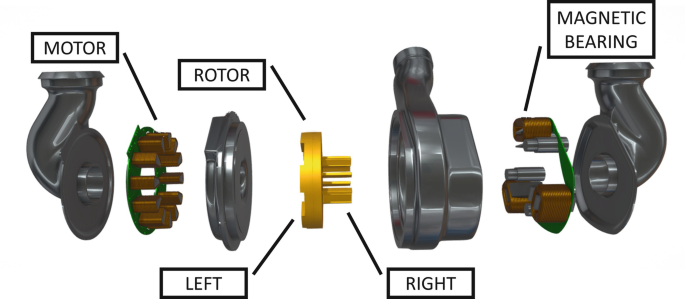
This means fewer moving parts, less friction, and potentially greater durability. And here’s the most fascinating part: the turbine is suspended in place by magnetic levitation—the same technology used in high-speed Maglev trains. This allows the rotor to spin freely without touching any surfaces, which reduces wear and the risk of blood damage.
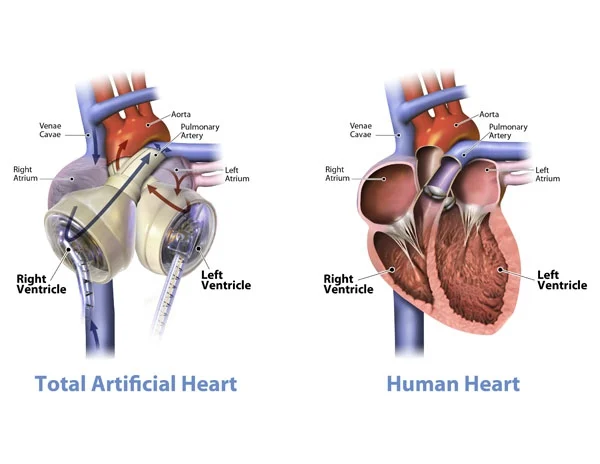
Another breakthrough feature is its intelligent adaptability. The BiVACOR heart adjusts blood flow in real-time based on the body’s needs. Whether you’re sitting on the couch or going for a walk, the device can increase or decrease output—just like a real heart does.
Why Do We Need an Artificial Heart Like This?
Heart failure affects more than 26 million people worldwide, and for many in the advanced stages, a heart transplant is the only real option. But there’s a major problem: donor hearts are incredibly scarce, and not every patient qualifies for a transplant due to age, other health issues, or urgency.
That’s where the BiVACOR heart could make a huge impact. It’s being developed as a long-term solution, not just as a temporary bridge to transplant like older artificial hearts. In time, it could serve as a full replacement for people whose hearts are no longer able to pump blood effectively.
What Happened During the First Implantation?
The first patient to receive the BiVACOR heart was in critical condition and facing limited options. The surgical team at the Texas Heart Institute successfully implanted the device as part of a clinical trial approved by the U.S. Food and Drug Administration (FDA).
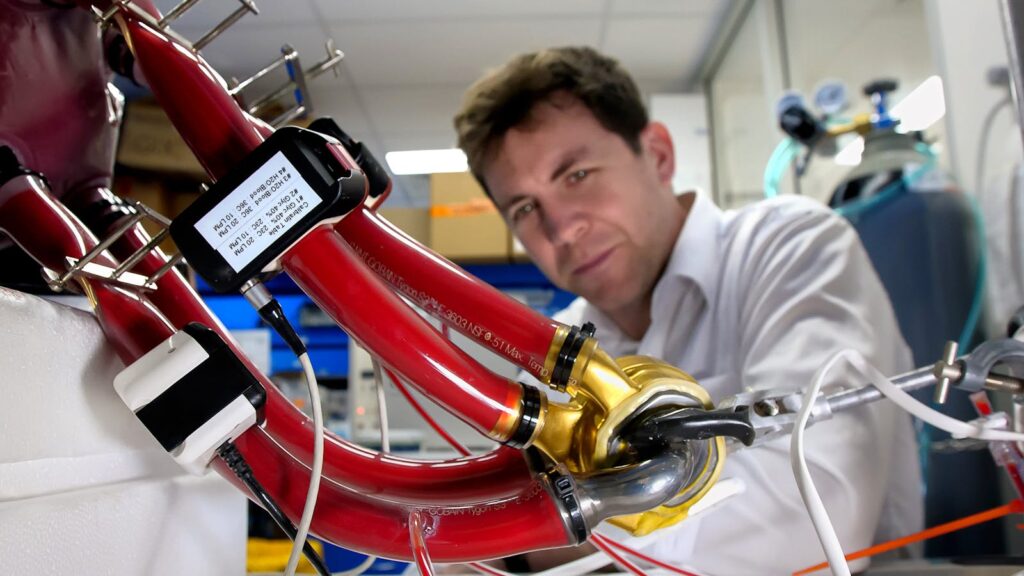
This trial will eventually involve ten patients across several leading U.S. hospitals, aiming to test the safety and performance of the device in real-life scenarios. It’s the first step in what could be a transformation in how we treat advanced heart failure.
“Our TAH brings us one step closer to providing a desperately needed option for people with end-stage heart failure who require support while waiting for a heart transplant.” – Daniel Timms, PhD, Founder and Chief Technology Officer of BiVACOR
Looking Ahead: A Future of Mechanical Hearts?
BiVACOR’s Total Artificial Heart is still in the early stages of clinical testing, but the implications are enormous. If the trials go well, this device could be a game-changer—offering hope to thousands of patients who currently have no other viable option.
Unlike previous artificial hearts, which were bulky, noisy, and often used only as a stopgap measure, the BiVACOR heart is being designed for long-term use, better quality of life, and lower complication rates.
This could mean:
- More time with loved ones for patients who would otherwise face a short life expectancy
- Reduced dependence on organ donation systems
- A future where heart failure is no longer a terminal sentence, but a manageable condition
From Science Fiction to Science Fact
For decades, the idea of a fully artificial, compact, and reliable human heart seemed like something out of a sci-fi movie. But with BiVACOR’s first human implant, that future is arriving sooner than expected.
We are witnessing the beginning of a new era in cardiovascular care—one where mechanical hearts might beat alongside our natural ones, offering life-saving solutions with the help of cutting-edge technology, smart design, and human ingenuity.
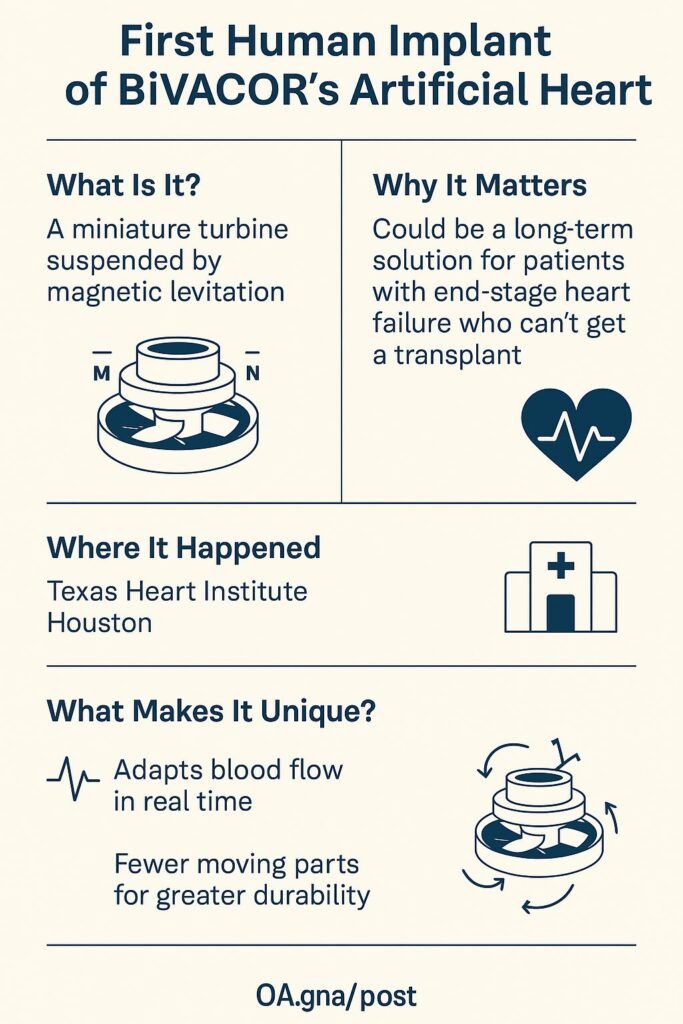

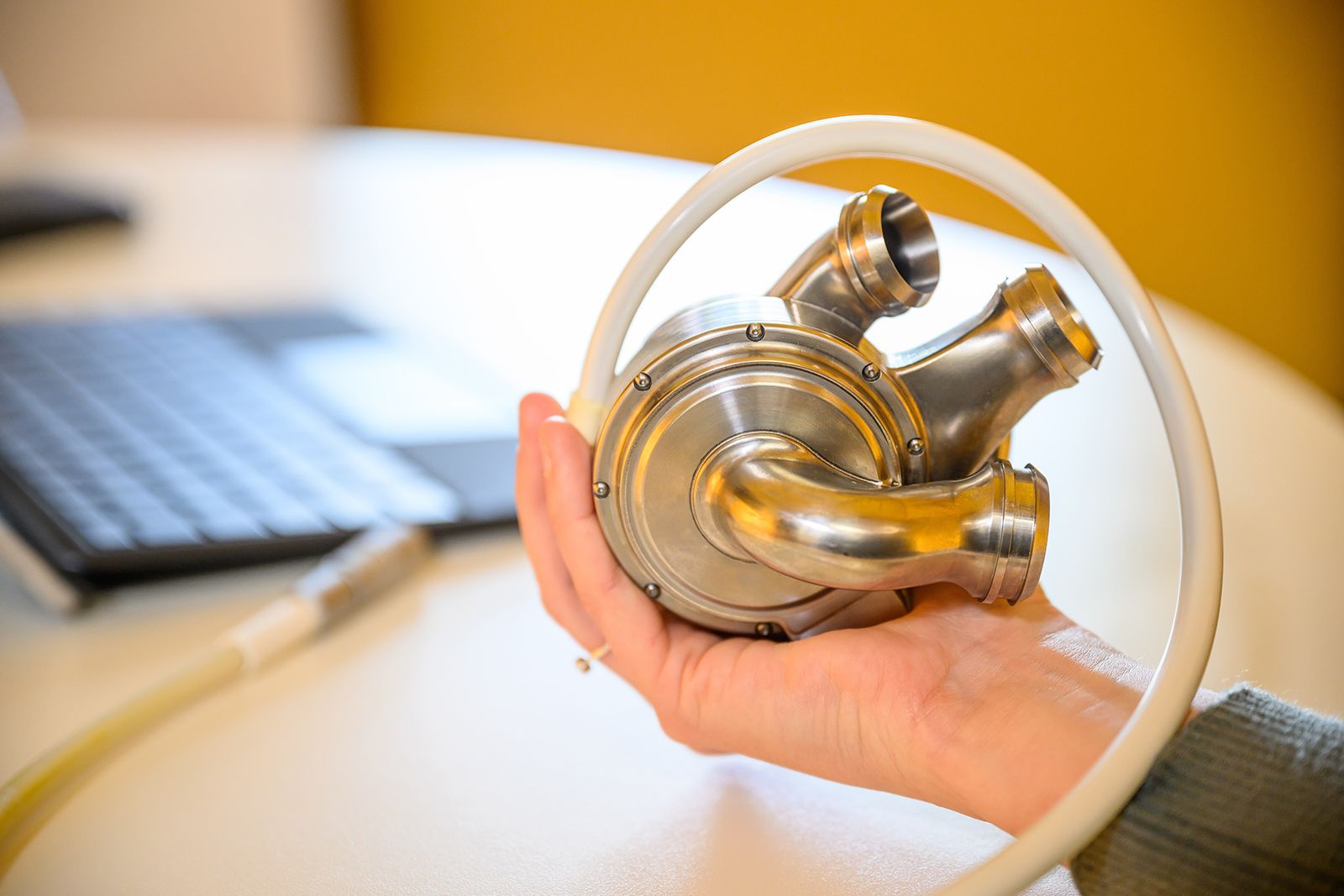
Leave a Reply